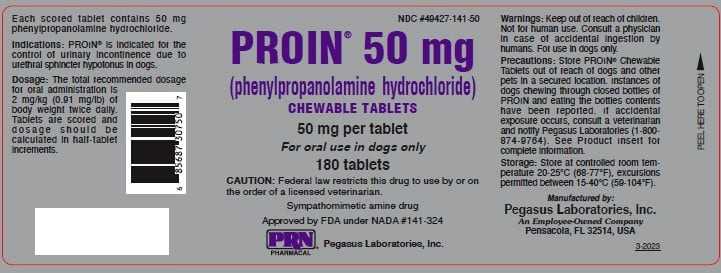It’s been a wild and busy week, so when I would normally have been writing my newsletter, I was on a sadhana course with about 12,000 others, and the week before that, involved in the last rites of a great Rasik saint who left her earthly existence.
I’ll catch up with more next week, but for now, if you have a female dog who’s been put on the commonest incontinence drug on the market, you’ll want to read this.
When a Drug Seemed Safe…
Many of you may have a female dog on this drug called Proin (phenylpropanolamine, aka Propalin, maybe other names). It replaced the less safe DES decades ago. I had moved into homeopathic practice by that time, so just assumed this was a safe alternative.
Oops. My bad.
Homeopathy, at least in my hands, had little success in curing the incontinent bitches I saw, though admittedly, there were only a handful of cases.
History/Causation of Leakers
If you didn’t already know, urine leaking is a chief side effect of spaying females, mostly dogs as far as I know. Cats somehow make do, it would appear.
Estrogen from those intact ovaries keeps the urinary system in good trim, the bladder sphincter fully functional. That major hormone is primarily produced by the ovaries, so spaying in the usual manner drops its levels to near zero, rather quickly.
Worse yet: spaying young. Full of unwanted side effects, this timing benefits only Dr. WhiteCoat and the high volume spay/neuter clinics. For more on this, be sure to read this post: Neuter or Not? And When?
My eyes were opened this week when Wendy Long, one of my wise Vital Animal Alpha students, commented on this old post, excerpted here for brevity:
Keisha is 13. She has been taking propalin 3/day, for incontinence, since May 24th, 2023(posted July, 2023). She saw an Osteopath at 5:00 PM yesterday, her 1st time seeing an Osteo. They worked on her hind area, as she is very tight and not a lot of range of movement. By end of appt. her range was a little better. This morning at 8:30, Keisha went to stand up, and her hind legs collapsed beneath her. She tried to walk again and they collapsed. She walks like she is drunk, leans toward her right when sitting and while standing. When she walks, she seems a little disoriented. When she shakes, (to fluff her fur), she instantly flips onto the ground, on her right side. Her appetite is still good and she is resting calmly but is panting from time to time. We have an appointment tomorrow morning at the vet.
I am wondering if her symptoms are part of the more serious side effects of the propalin or is it possible the osteo released/dislodged a clot that went to the Brian? Any feedback is appreciated. Thank you.” — Alison
Here’s Keisha, before all this set in:
We Largely Blamed the Osteopath…
Replies skewed away from the drug, but admittedly, we’d not studied it. Alison replied to one student saying it was probably the adjustment by adding more details:
“I thought the same but her mental state is not good. She seems confused and anxious and keeps staring up as if something is around her.”
A New Set of Eyes
Recently, Wendy was viewing old posts from our private discussion group and added the clincher that brought this article to you today:
Wendy:
I know this is an older post but I wanted to give my experience with using Proin (Propalin) on two of my dogs for urinary incontinence about 14 years ago. What I learned along the way was that it can cause high blood pressure. The way it manifested in our dogs was extreme agitation/restlessness. One of them was 14 years old when it started getting worse and Dr Whitecoat said it was probably dementia. No mention that it could have been related to the RX. We ended up having her euthanized at 15 despite the fact that she was still very physically fit, went on our daily hour long hike that morning before the vet came. It was a heartbreaking decision to make because she seemed so emotionally or cognitively impaired but was still so physically strong for her age.
It wasn’t until the next dog that started having incontinence issues began to display some of the same symptoms that I did my own research and found out about the hbp side effect of Proin. I immediately stopped giving her the meds and within a couple days she was back to normal and lived probably 6 more years.
When I informed my vet that it causes high blood pressure his response was basically that yes, it can, but there’s no easy way to monitor a dogs blood pressure so…..
To The Search Engine!
I’d obviously missed this drug’s dark side, so I started a search in my new fave search/browser called Dia, which quickly reviewed multiple relevant articles and studies and produced the following:
Common side effects of Proin in dogs include vomiting, high blood pressure, anxiety, and increased thirst.
Proin (phenylpropanolamine) is a medication prescribed to treat urinary incontinence in dogs. While it is generally effective, it can cause a range of side effects, especially at higher doses or in dogs with certain preexisting conditions.
Common Side Effects
Vomiting
High blood pressure (hypertension)
Loss of appetite
Weight loss
Protein in the urine (proteinuria)
Increased thirst
Anxiety, restlessness, or behavior changes [←-high blood pressure related?]
Diarrhea
Lethargy
Panting
Insomnia
Abnormal heart rhythms (high or low heart rate)
Less Common or Serious Side Effects
Excessive salivation
Agitation or hyperactivity [←-high blood pressure related?]
Tiredness or weakness [Definitely can be caused by high BP, ask me how I know…]
Vocalization or confusion
Reversible changes in skin color (flushing or bright pink)
Abnormal gait
Seizures or tremors
Liver enzyme elevations
Kidney failure
Blood in urine or urine retention
Collapse or sudden death (rare, sometimes preceded by vocalization or collapse)
Sheesh, right?
So, Wendy was obviously aware of this, and added a bit later in the discussion thread:
I’ve interacted with several people on social media over the years whose dogs were displaying these behaviors and they turned out to be taking Proin/Propalin. And of course, not one of their vets had warned them to watch for these potential side effects. So, it’s up to people like us for now to sprinkle truth bombs wherever we go and hope that people will take that info and do their own research.
Safer Fixes for Leakers?
While I don’t consider combinations of remedies to be homeopathy, like I said, I had little to no success with classical homeopathy in the small group of incontinent dogs I had in practice.
I searched a bit further and found a combo of remedies (and potencies, gaa…) that’s apparently helped keep dogs out of diapers.
So, you can do your own homework and decide if this is worth your while to try.
My concern with combos: they do not cure.
They palliate at best, meaning: while on the treatment, symptoms subside. Once treatment is stopped, symptoms return. The long term risk is worsening of underlying chronic disease. Use at your own risk.
Let us know in the comments if you’ve got better ideas. Some of you will have likely tried “OSS” — ovary sparing spays, where the uterus is removed, preventing pregnancy, but those powerful estrogen producing gonads remain intact. I’m all for that, if you feel the need to spay.
I’ll be back to a more normal issue on my usual fortnightly schedule starting next Sunday, so thanks for reading and stay tuned…
Oh, heck, there’s still a bit of time…
Along the Natural Path
Here’s what it looks like all around me in No. India, as fields are flooded for the annual rice crops going in:
And here are the magicians who turn bundles of rice seedlings into neatly planted rows destined to grow to full on rice plants:
Till next time…
Will Falconer, DVM









I always look forward to these missives.
I no longer vaccinate my dogs as a result of reading Dr. Falconer's material.
I fail to believe that rabies shots are given in the same dose for a small 10 pound miniature dachshund and a 100 pound animal> my current dachshund pup refused to look at me for two weeks after his initial round of vaccinations because he knew.
Something needs to happen about this in the veterinary world and somehow action needs to be taken because it certainly unfair to these animals to have regulated vaccines for rabies by law with the same dosage regardless of size.
I now have my dogs titered before a rabies shot today and then argue, if need be, with the vet. She must be hearing this a lot as she is very responsive.
Good info on this drug. Thank you.
I use homeopathy as well...it should come back in vogue completely for animals and humans.
Gigi Belser
Hi Doc! My 10 year old Dogo has been doing great on a commercial preparation of "Glandular Support", made from a combination of endocrine and non-secretory organs. I like it because it's not a bombardment of synthetic hormone, but rather a substrate from which her body can choose for specific support, as needed. She has been spayed for 5 years and has not had any issues with weight gain, loss of energy, incontinence, or any of those related issues. It is marketed as safe for dogs and cats, and there is a twin formula for male dogs and cats.